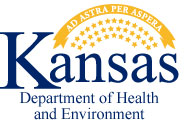Critical Congenital Heart Defect screening added to required Kansas newborn screenings

TOPEKA, Kan. – In the United States, a baby is born with a birth defect every 4½ minutes, about 120,000 babies each year, with approximately 1,150 cases occurring in Kansas. Birth defects are the most common cause of death in the first year of life and the second most common cause of death in children ages one to four years.
Critical Congenital Heart Defects (CCHD) are among the most common birth defects, accounting for up to 30 percent of infant deaths due to birth defects. Babies born with a CCHD may appear healthy at first and may be sent home with their families before their heart defect is detected. These babies are at risk for having serious complications within the first few days or weeks of life and often require emergency care.
The Kansas Department of Health and Environment (KDHE) Newborn Screening Program is pleased to announce that Kansas has added CCHD as one of the required Kansas screenings authorized by K.S.A. 65-180(i). Additionally, KDHE is pleased to join the Pediatric Congenital Heart Association in recognizing the annual Congenital Heart Disease Awareness Week (February 7-14) to raise awareness of critical congenital heart defects, including screening, the need for research, and access to quality care.
Since 2014, the Kansas Newborn Screening Program has been working with the Kansas Hospital Association, American Heart Association, March of Dimes, parents, and physicians from private and hospital-based practices in a quality initiative to implement CCHD screening. The initiative’s comprehensive approach focused on accepted protocols including education, screening, diagnosis, short- and long-term follow-up, data collection, evaluation and quality assurance. More information about CCHD Screening in Kansas can be found at http://www.kdheks.gov/newborn_screening/CCHD.









